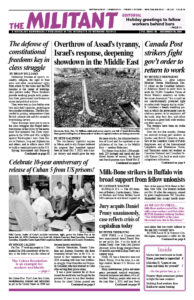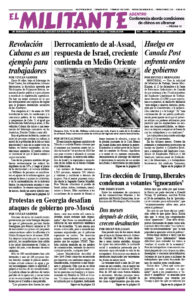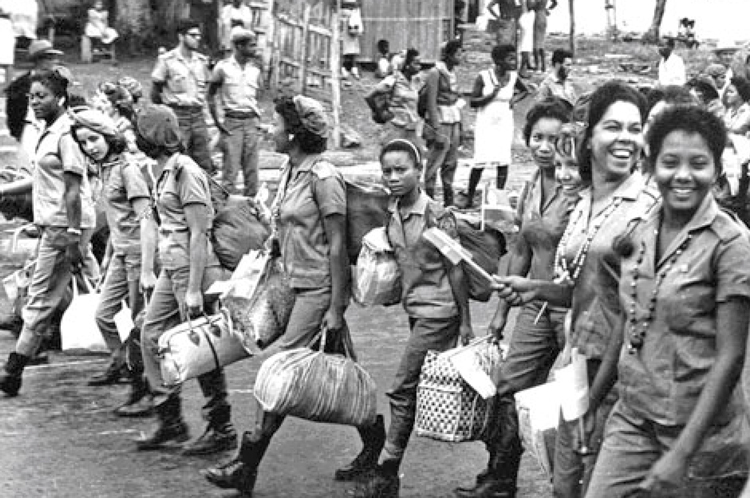Sixty-six years ago under the leadership of Fidel Castro, working people in Cuba overthrew the U.S.-backed dictatorship of Fulgencio Batista, took political power and went on to uproot capitalist exploitation. There is no better example of what workers are capable of accomplishing than this first socialist revolution in the Americas.
That conquest on Jan. 1, 1959, transformed the lives, conditions, and political consciousness of workers and farmers in Cuba. And like the Bolshevik Revolution before it, the Cuban Revolution opened a renewal of communist leadership in the Americas, the United States and beyond.
Under Batista’s rule, hundreds of thousands were out of work, half of the island’s population had no electricity and more than half lived in huts, in slums, with no sanitary facilities. The Cuban people became convinced that the only road forward was to fight.
One of the first steps of the revolutionary government was to cut rents by 50%, then the price of electricity and phone service. Millions turned out to back the government’s land reform, which returned land to those who tilled it, and its nationalization of basic industry. Schools and medical centers were established. Mass organizations, from a new working-class army to nationwide formations of women, youth and neighborhood committees were put together to deepen the revolution.
That’s what’s possible when working people, with the leadership we deserve, succeed in putting state power into their own hands.
The Cuban Revolution has shown that internationalism is key to defending the revolution. “Those not willing to fight for the freedom of others will never be able to fight for their own,” Fidel Castro said in 1976. Hundreds of thousands of Cubans then began to volunteer to join the fight to repel the invasion of Angola by the apartheid regime of South Africa and to win Namibian independence, helping pave the way for the fall of the apartheid regime itself.
The U.S. government, under every administration since 1959 has used all means possible, including a brutal embargo, to bring hunger and misery to the Cuban people, and above all to overturn their socialist revolution.
From the beginning, the Socialist Workers Party has joined in building the broadest possible opposition to the U.S. rulers’ economic war against the Cuban people. It’s made the speeches of Castro and other revolutionary leaders widely available. The SWP seeks to build a party in the U.S. to lead the fight for workers power here, extending what was accomplished by the Cuban toilers.
The Cuban people continue to fight against Washington’s aggression. On Dec. 20, they will march along Havana’s Malecon to express, in front of the U.S. Embassy, their demand for an end to U.S. hostility.
“We will march with the profound conviction, instilled by Fidel, that there is no force in the world capable of crushing the force of truth and ideas,” the Cuban daily Granma wrote Dec. 17.


